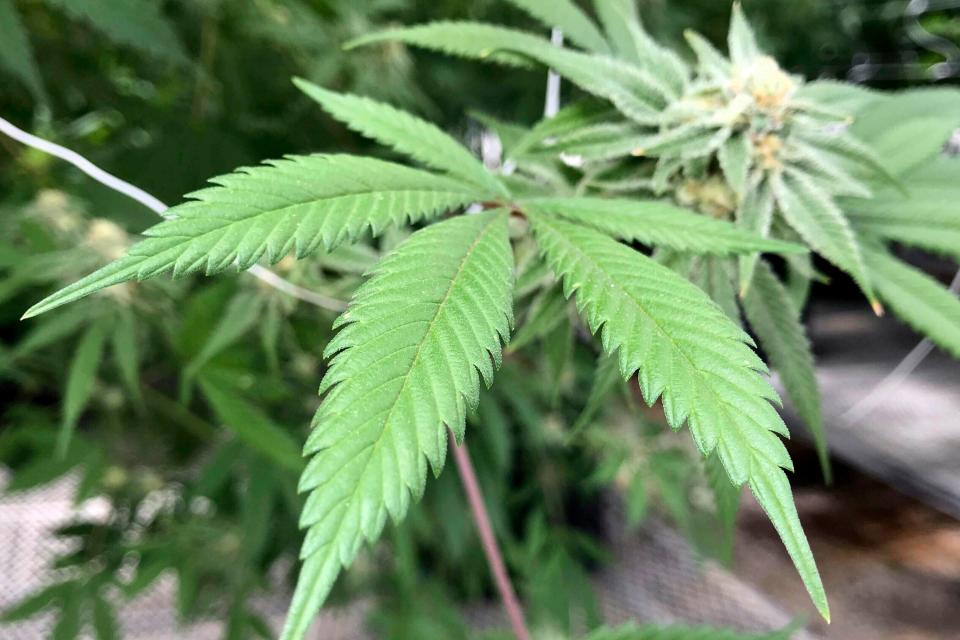America is ready for marijuana reform. Biden's pardon announcement proves it.
No one should go to jail or be targeted by police for a nonviolent marijuana-related crime when its use is legal in most states.
That's what USA TODAY Opinion said in an August editorial, one of four published as part of a series urging reform of the nation's marijuana laws.
It's such a simple conclusion, one that has evolved after years of marijuana policy reform and practice. It's finally one that is being taken seriously.
President Joe Biden announced Thursday that he will pardon people with federal convictions for simple possession of marijuana, a historic move that could help more than 6,500 individuals. He also encouraged America's governors to take similar action.
'Racial disparities around prosecution and conviction'
"Sending people to jail for possessing marijuana has upended too many lives – for conduct that is legal in many states," Biden said. "That’s before you address the clear racial disparities around prosecution and conviction. Today, we begin to right these wrongs."
Read USA TODAY Opinion's Editorial series: Time for change: Federal ban on marijuana use causes more harm than good

A majority of states have laws that permit marijuana in certain circumstances. It's simply become foolhardy to ignore those drug policies:
►About 20 states allow marijuana for medical or recreational use.
►Nearly the same number of states allow marijuana for medical purposes only.
►10 more states allow products with nonpsychoactive compounds.
►Two U.S. territories and Washington, D.C., also have legalized recreational marijuana.
Sound leadership is doing what's right
Sound leadership is taking a stand even when it’s not timely or popular. Sound leadership is doing what's right for a constituency that has been unfairly demonized and imprisoned for nonviolent offenses.
More from USA TODAY Opinion: He's serving 40 years in prison, while legal marijuana makes others rich
After all, Black people are significantly more likely than white people to be locked up for drugs, even though Black and white Americans sell and use drugs at similar rates.
Sending people to jail for possessing marijuana has upended too many lives – for conduct that is legal in many states. That’s before you address the clear racial disparities around prosecution and conviction. Today, we begin to right these wrongs.
— President Biden (@POTUS) October 6, 2022
America is finally having a productive conversation about the decriminalization of marijuana. Biden, as promised, is leading that conversation.
Opinion alerts: Get columns from your favorite columnists + expert analysis on top issues, delivered straight to your device through the USA TODAY app. Don't have the app? Download it for free from your app store.
Fentanyl kills. Heroin kills. Opioids kill. Cocaine kills. Methamphetamine kills. Even alcohol and tobacco – deemed legal and easily accessible – kill. Marijuana isn't harmless, but America's continued war on drugs has many more dangerous and deadly chemical targets to obliterate. It's obscene for marijuana to still be listed as a Schedule 1 drug under federal law.
Biden's action on Thursday is a step in the right direction. It's a step toward the federal decriminalization of marijuana – and it's long overdue.
More from Suzette Hackney:
Biden has lofty plan to 'end hunger.' But he must address Americans' urgent needs.
Invited to the White House then shunned: 'No matter what they say, they don't see us'
Jimmy Kimmel's stupid antics are just latest insult for Black women (and men)
National columnist/deputy opinion editor Suzette Hackney is a member of USA TODAY’S Editorial Board. Contact her at shackney@usatoday.com or on Twitter: @suzyscribe
This is part of a series by USA TODAY Opinion about police accountability and building safer communities. The project began in 2021 by examining qualified immunity and continues in 2022 by examining various ways to improve law enforcement. The project is made possible in part by a grant from Stand Together, which does not provide editorial input.
You can read diverse opinions from our Board of Contributors and other writers on the Opinion front page, on Twitter @usatodayopinion and in our daily Opinion newsletter. To respond to a column, submit a comment to letters@usatoday.com.
This article originally appeared on USA TODAY: Biden's marijuana pardon announcement is step toward decriminalization

 Yahoo Movies
Yahoo Movies 
